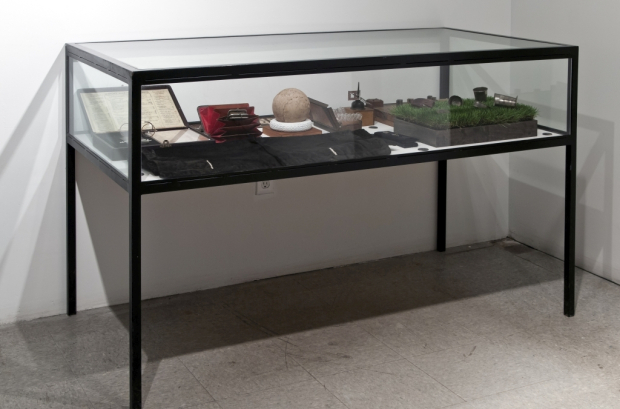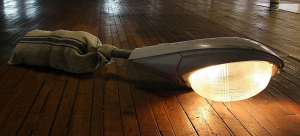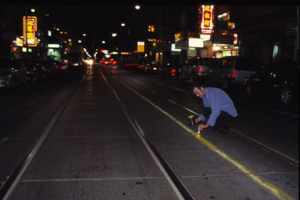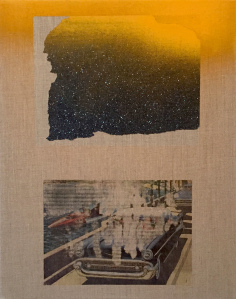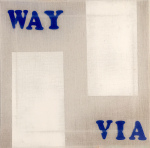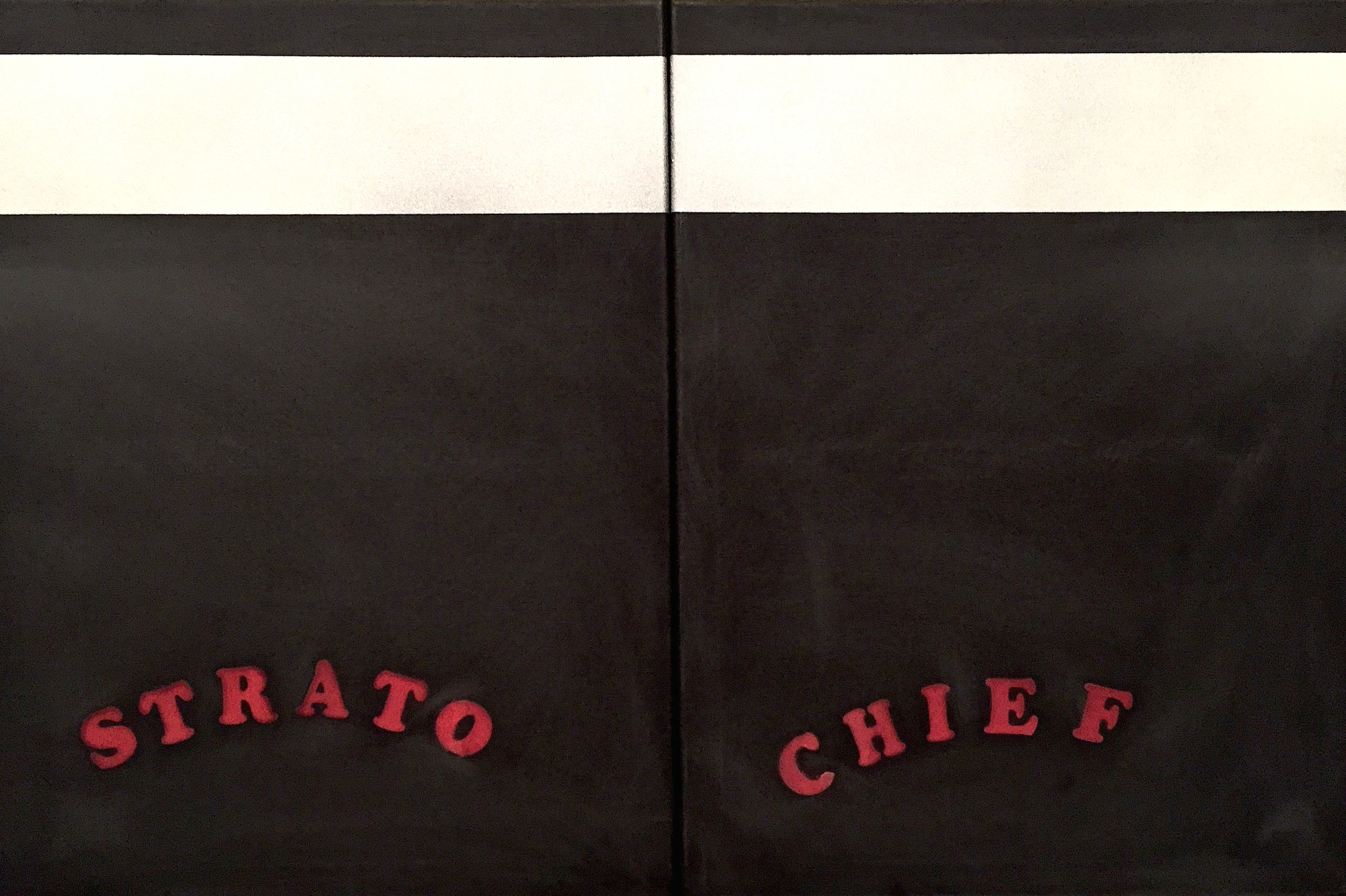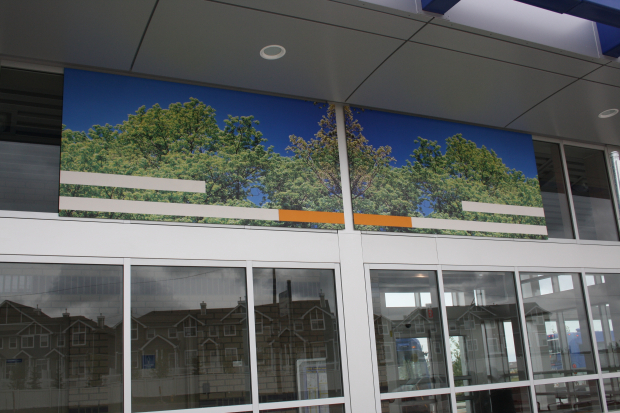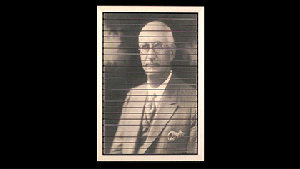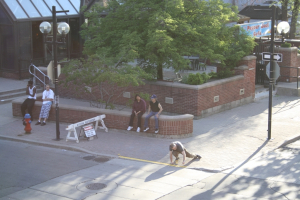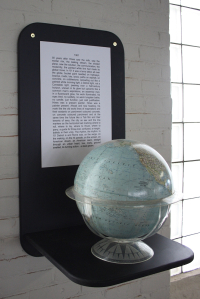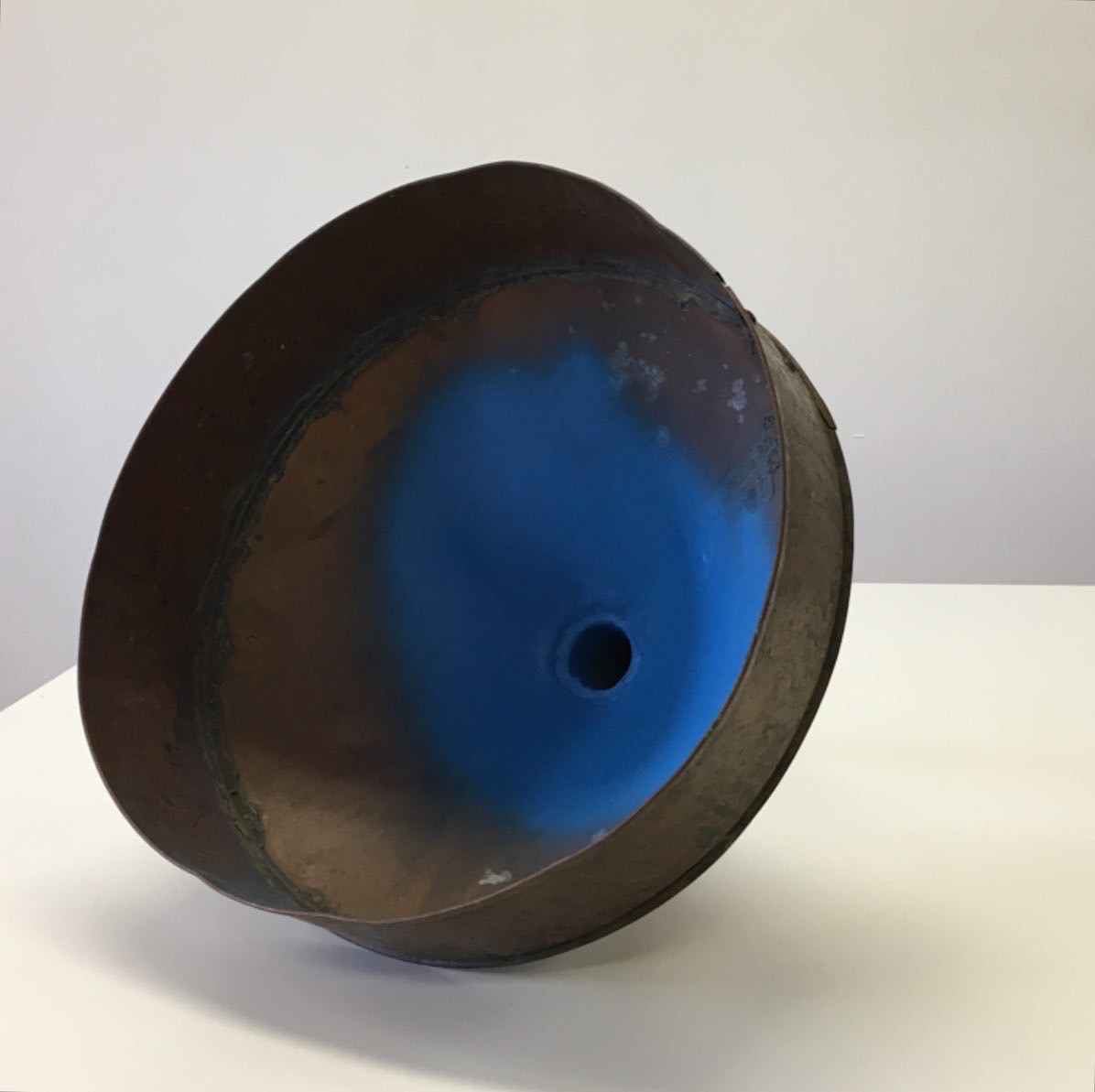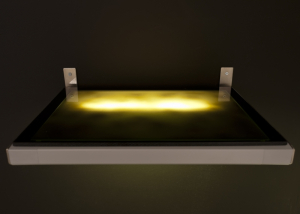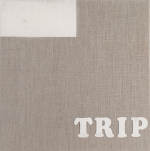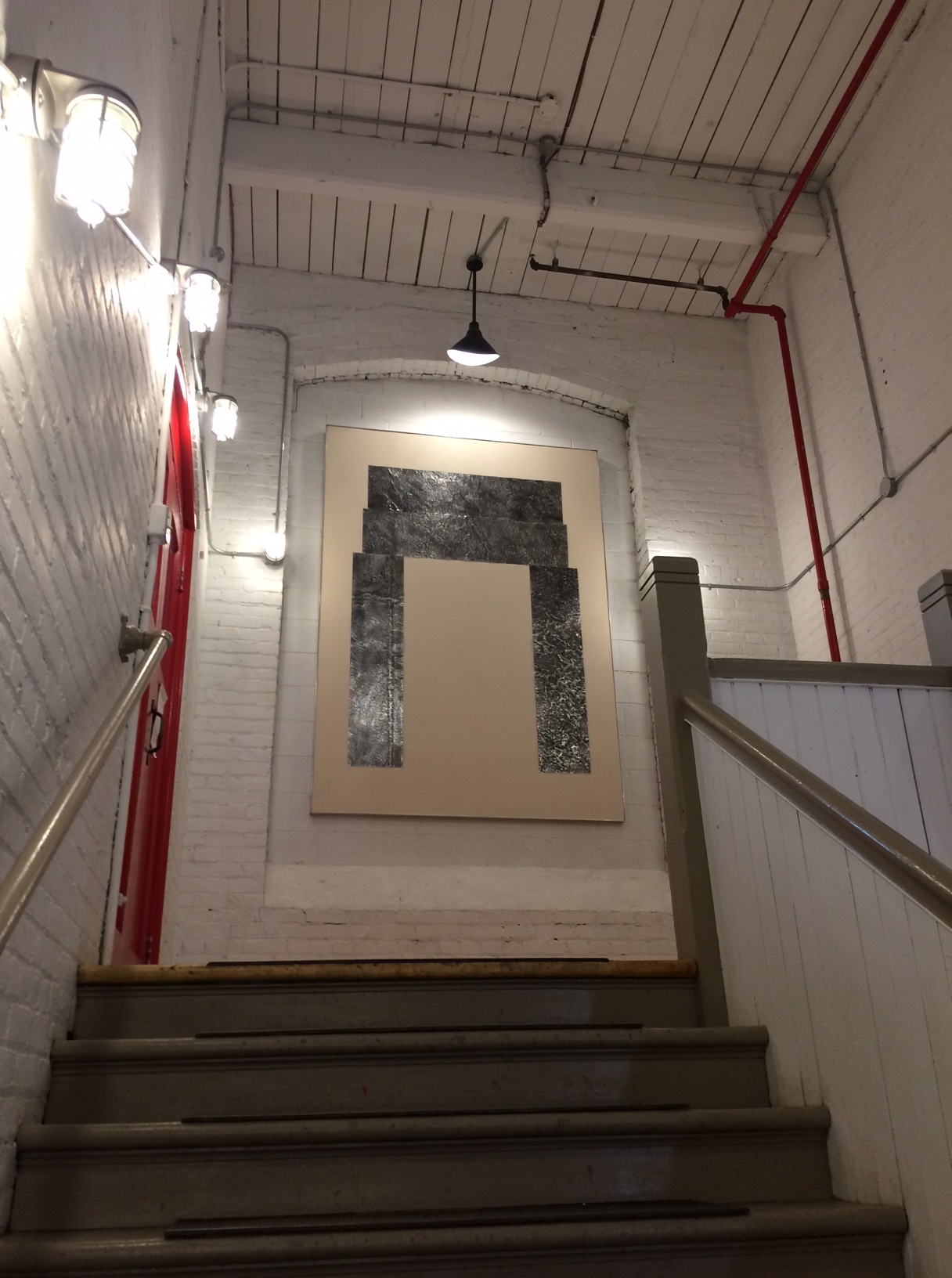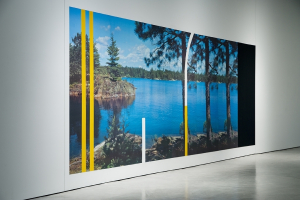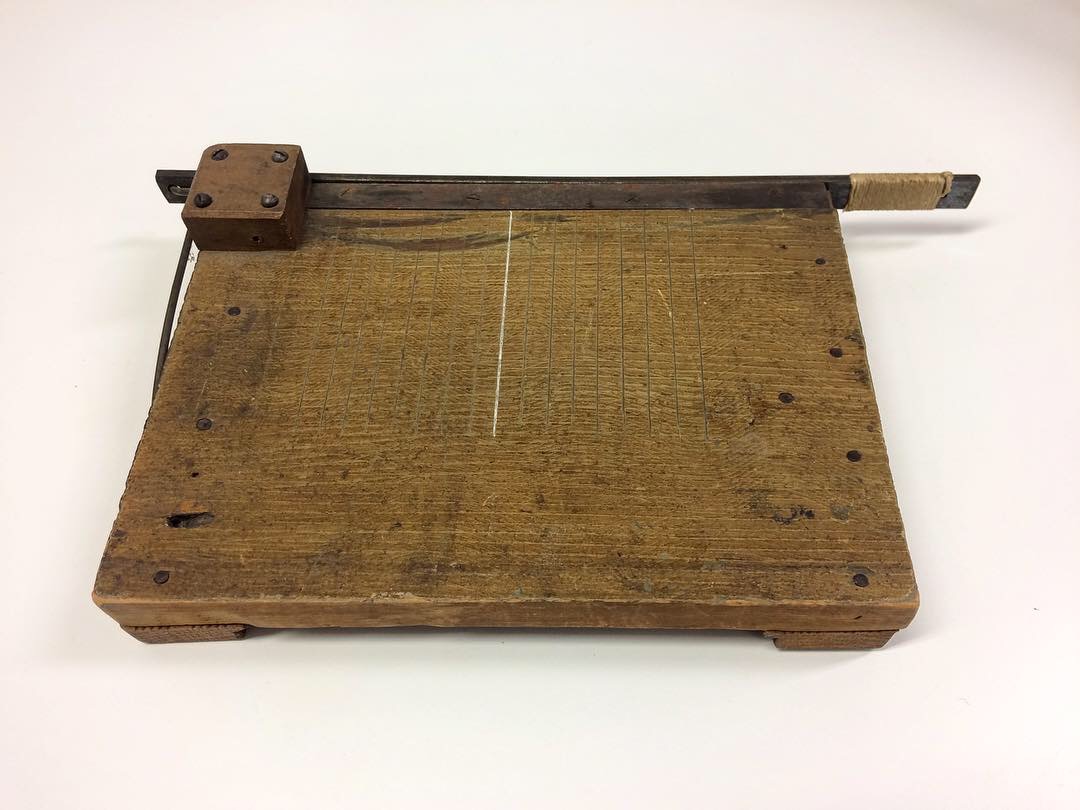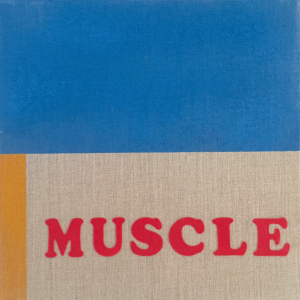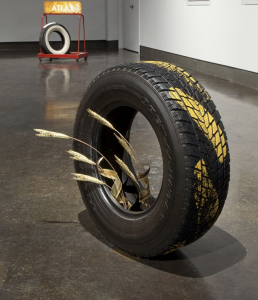Paintings
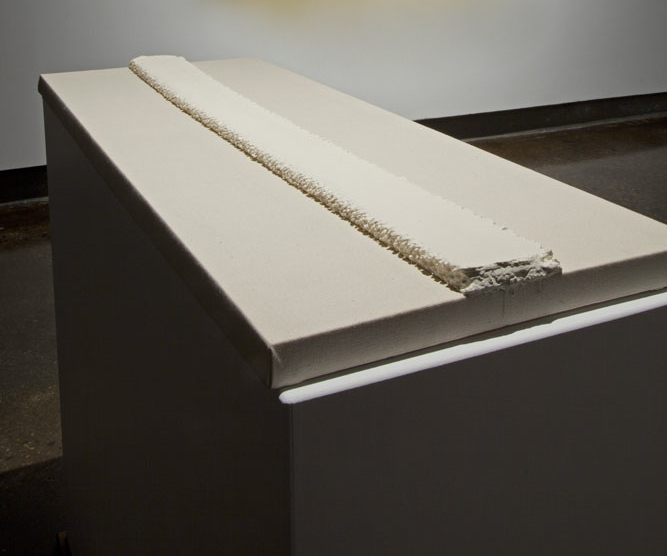
Paintings are constructed exclusively with line marker paint in a self-described process of ‘replication or reproduction’ according to civic transportation manuals. Of specific further significance, is the 1:1 ratio of the lines, their paint colour and application manner (horizontal) and the unprimed or unaltered support surfaces.
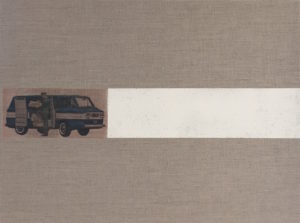 Don’s Day(dream) (detail), 2015, line marker, transfer on linen, 11″ x 14″. From the series: 1970
Don’s Day(dream) (detail), 2015, line marker, transfer on linen, 11″ x 14″. From the series: 1970
![]() PANOPTICON, 2013, line marker on canvas, 82″ diameter
PANOPTICON, 2013, line marker on canvas, 82″ diameter
Wherever we drive, we drive in the public world, normally subject to unobjectionable public observation. However, the current development of the Intelligent Vehicle Highway Systems (IVHS) will contain information on where we go, the routes we use and when we travel. Bentham’s 18th century idea design consisting of a circular structure with an ‘inspection house’ at its centre, for watchmen to watch; is visually channeled through the layering of line marker language.
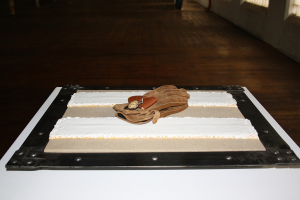 WHEEL WORDS (for R.E.W.), 2012 (January – March), line marker on linen, opisometer, driving gloves, welded/riveted steel frame (Michael Currie), 30″ x 20″ x 4″
WHEEL WORDS (for R.E.W.), 2012 (January – March), line marker on linen, opisometer, driving gloves, welded/riveted steel frame (Michael Currie), 30″ x 20″ x 4″
A biographical work, the conversation that occurs inside a car – errand or family trip – is as valuable as the peer through the window.
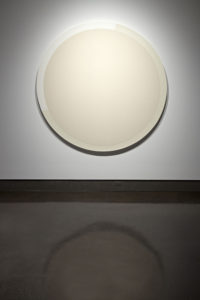 MAP (All Roads Lead), 2011, line marker on canvas, 82″ diameter
MAP (All Roads Lead), 2011, line marker on canvas, 82″ diameter
A single line edges the circumference of the canvas in two whites: one used in North America and one used on the streets of Rome (all roads lead to Rome).
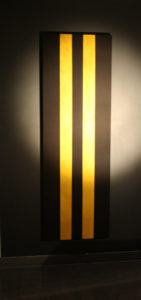 The Double Yellow, 2011, line marker, glass beads on canvas 72 x 36″ diameter
The Double Yellow, 2011, line marker, glass beads on canvas 72 x 36″ diameter
From the NOCTURNE SERIES, line marker paintings employ black canvas as a support, are spotlit, and are constructed in a two-step layering process of paint then glass beads used on highways. A new departure for line marker paintings in 2011, to commemorate the centennial of the device.
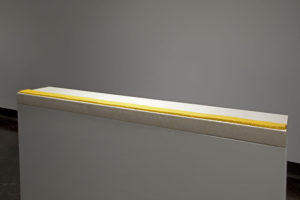 ¼ mile for Edward Hines, yellow, 187 passes, 2010, line marker on canvas, 84” x 15” x 5”
¼ mile for Edward Hines, yellow, 187 passes, 2010, line marker on canvas, 84” x 15” x 5”
The ¼ mile works purport a pataphysical idea/question: how to quantify distance through thickness? A single standard 4″ wide line, 50” in length, painted repeatedly edge to edge, (an action self-referred to as a ‘pass’), 317 times, eventually constitutes a ¼ mile. The ¼ mile quotient is a standard unit within automotive performance; referring also to ideas of quality/quantity.
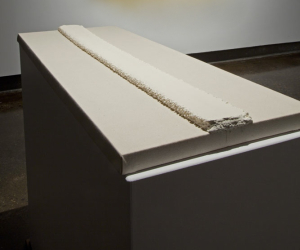 ¼ mile for Edward Hines, white, 317 passes, 2010, line marker on canvas, 50” x 20” x 4”
¼ mile for Edward Hines, white, 317 passes, 2010, line marker on canvas, 50” x 20” x 4”
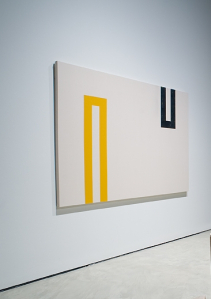 Pentimento (
Pentimento (yellow, yellow, black), 2007, line marker on canvas, 60″ x 72″
The Pentimento series explores the notion of altering or changing a code as well as the line marker’s exposure to the natural elements/climate. Line markers are repeatedly painted, then sanded, then repainted or ‘painted out’ for a number of years/coats.
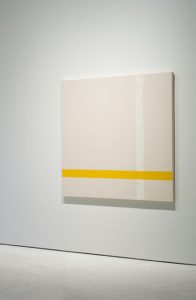 Pentimento (
Pentimento (yellow, yellow, white), 2006, line marker on canvas, 60″ x 60″
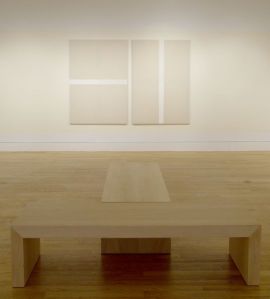 Map, 2005, line marker on canvas (two panels), 50″ x 80″
Map, 2005, line marker on canvas (two panels), 50″ x 80″
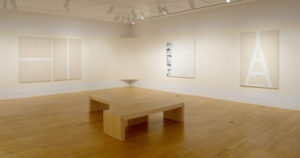 Installation view, Art Gallery of Hamilton, pictured left to right, Map, 6 Hour Time Difference, Pelee, 2006
Installation view, Art Gallery of Hamilton, pictured left to right, Map, 6 Hour Time Difference, Pelee, 2006
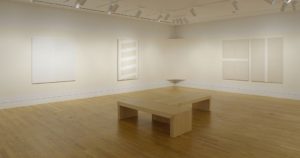 Installation view, Art Gallery of Hamilton, pictured, left to right White Roma, White Pelee, Fellini, Map, 2006
Installation view, Art Gallery of Hamilton, pictured, left to right White Roma, White Pelee, Fellini, Map, 2006

